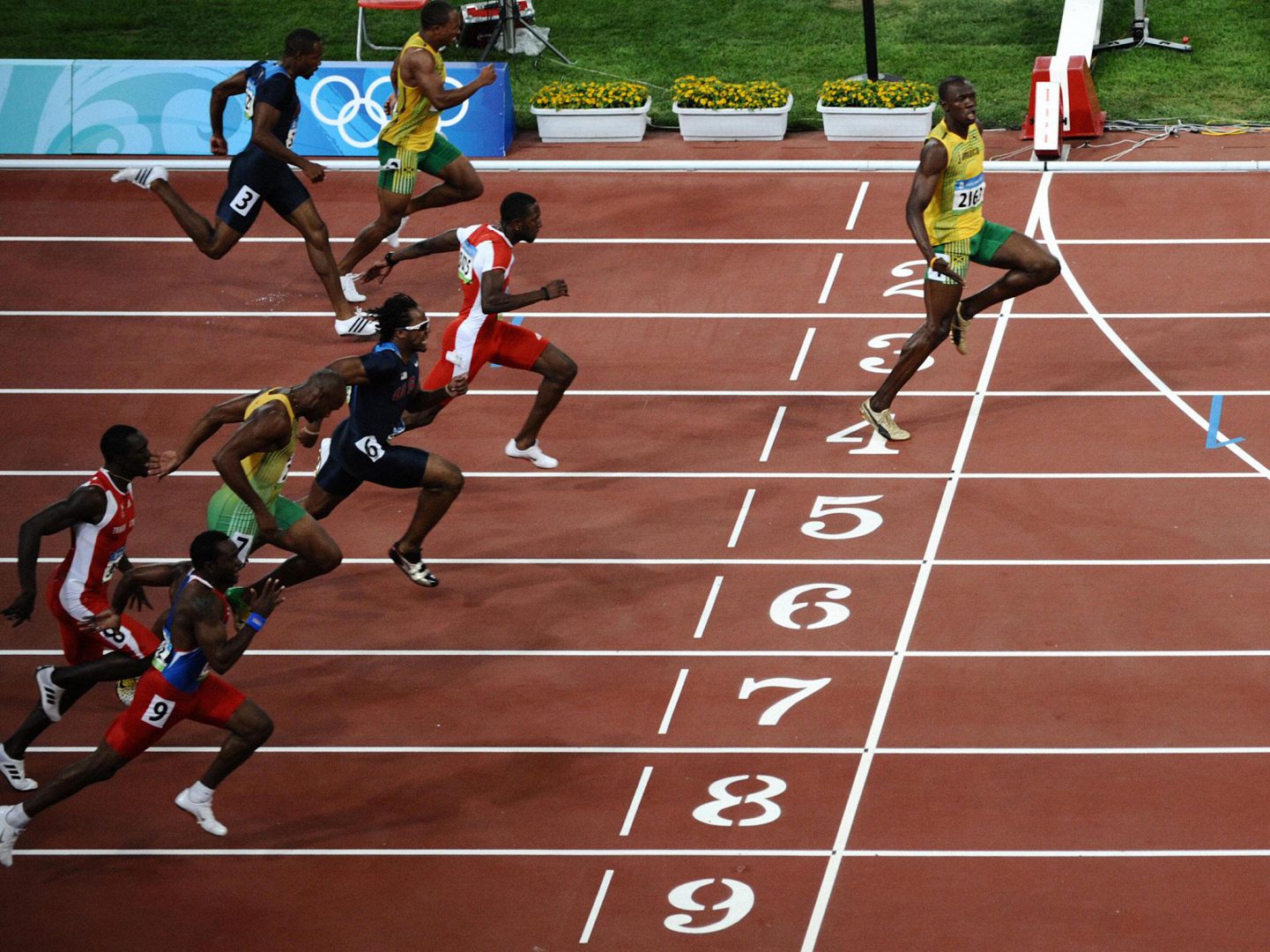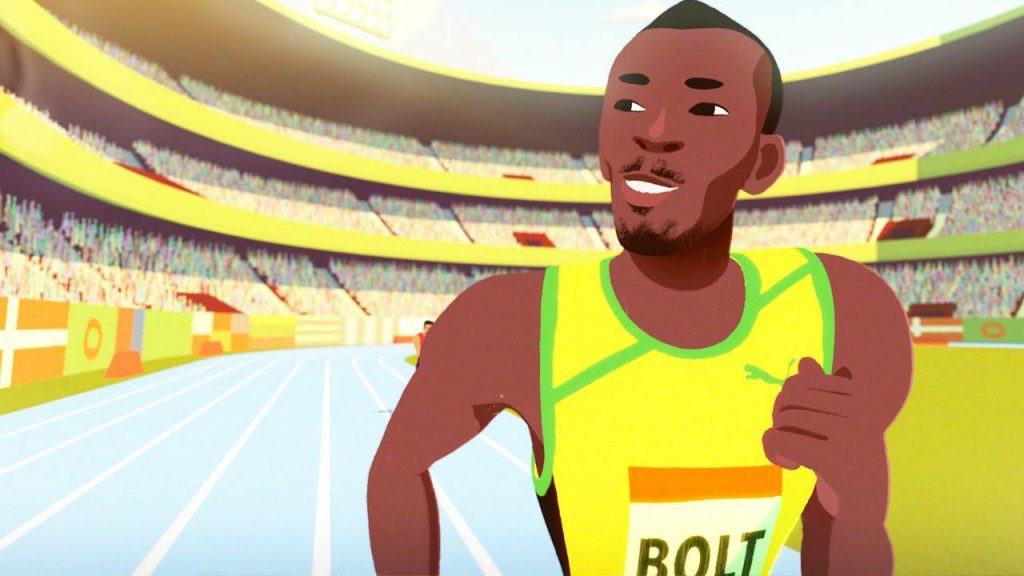
Resuming from our earlier blog post on Bolt which ended on a “cliff-hanger,” let us dwell some more light on the second phase of Usain’s career. This second phase had blinding spotlights amid Bolt who had courted several world records on his hay day.
2008 Beijing Olympics: The Day he became a legend
At the 2008 Olympic Games, Bolt turned into the primary man since American Carl Lewis in 1984 to win the 100 meters, 200 meters, and 4 × 100-meter as a solitary Olympian finishing with (9.69 sec, 19.30 sec, and 37.10 sec, respectively). Be that as it may, misfortune struck as a medication test by one of his 4 × 100 partners prompted Bolt’s having his gold decoration in that occasion stripped. His 0.66-sec margin in the 200-meter race was the largest in Olympic history, and in spite of starting his triumph festivity around 80 meters into the race, his 0.20-sec edge throughout in the 100 meters, was the biggest since Lewis won by a similar margin.
The world fell in love in an instant, Bolt’s exuberance and joy a welcome antidote to the increasingly dour world of track and field, one beset then as now with bad news and performance-enhancing-drug busts. It’s the same passion that’s made him a transcendent star in a sport that is normally forgotten in the four years between each Olympic Games.
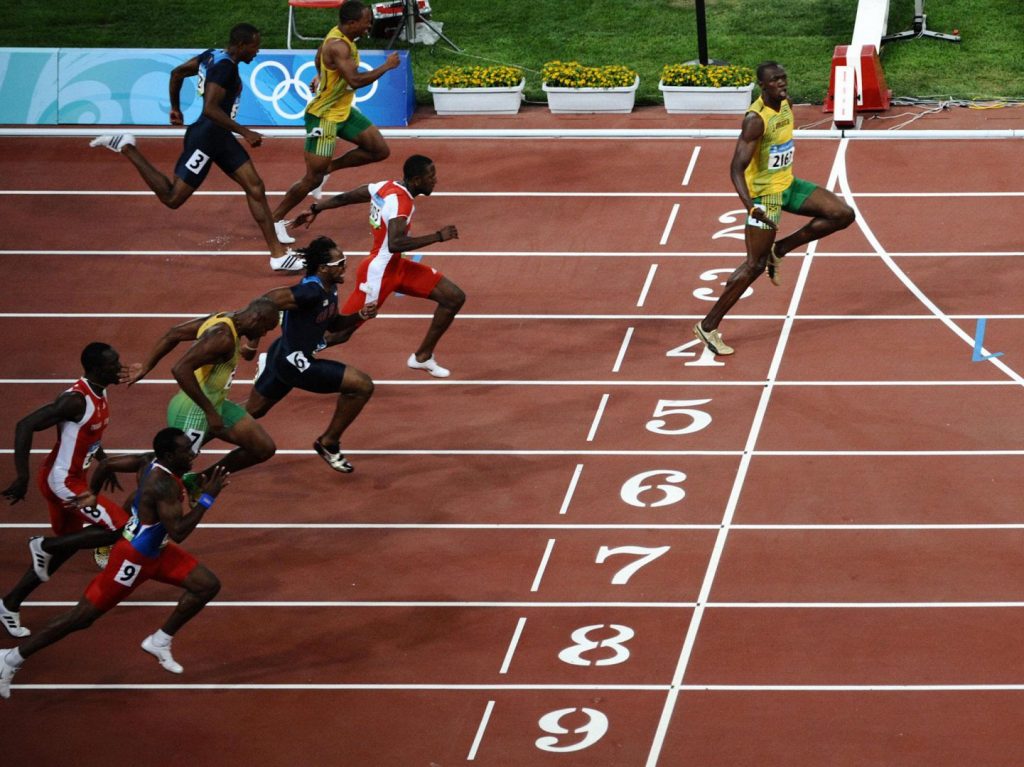
Usain Bolt during the 100m final in the 2008 Beijing Olympics (Source:independent.co.uk)
2009 – 2014: Lightning Bolt Continues to Strike
At the 2009 big showdowns, Bolt broke his 100-meter record, winning the occasion in 9.58 sec. After four days he broke his very own 200-meter record by 0.11-secs to win a second gold award at the World Championships. The 2009 World Championships saw Bolt battering the 73-year old Jesse Owens’s record in 100m. More justice was done to his hard work when Bolt broke the record for the track record 200m in the same tournament. That surged Usain to glory, making him a legend post a double gold.
Bolt was substantial. He was the most loved in the run occasions heading into the 2011 World Championships. However a bogus begin excluded him from the 100-meter last. Despite losing momentum, Bolt recouped for golds in the 200 meters and the 4 × 100-meter relays, setting another world record on the last occasion. Bolt started the 2012 season with the 100m and recorded a time of 9.82 seconds in May. He vanquished Asafa Powell with keeps running of 9.76 seconds in Rome and 9.79 in Oslo. At the Jamaican Athletics Championships, he lost to Yohan Blake, first in the 200 m and afterward in the 100 m.
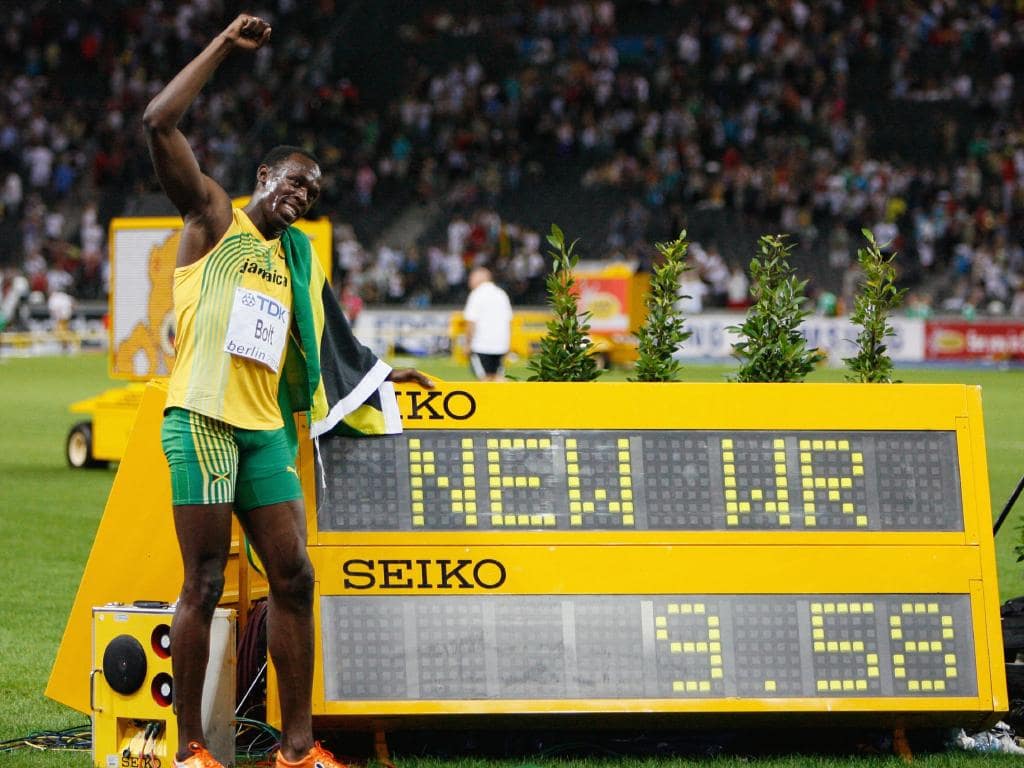
Usain Bolt of Jamaica celebrates winning the gold medal in the men’s 100 Metres Final at the World Athletics Championships in Berlin on August 16, 2009. He set a new World Record of 9.58.(Photograph: Getty images)
At the 2012 London Olympics, he won the 100 meters gold decoration with a period of 9.63 seconds, enhancing his very own Olympic record and retaining his gold award from the 2008 Beijing Olympics. Blake was the silver medallist with a period of 9.75 seconds. USA Today called him a national hero.
Damage to Bolt’s hamstring in March 2014 made him miss nine weeks of preparing. Having recuperated from a medical procedure, Bolt contended in the 4 × 100 meters transfer of the 2014 Commonwealth Games in Glasgow. Not in his top form, Bolt said that he was going to the Games for the fans to demonstrate his grit throughout the injury. Bolt and his colleagues won the 4 × 100 meters hand-off in 37.58 seconds – a Commonwealth Games record. This was the preeminent challenge of the year for Bolt, given no Olympics or World Championships in 2014.
In August 2014, Bolt set the indoor 100 m world record in Warsaw with a period of 9.98 seconds. This was his sole individual stint of the 2014 season. Later he finished his season early, so as to be fit for the 2015 season. In Bolt’s non-attendance, Justin Gatlin had commanded the runs, holding the year’s quickest occasions, including seven of the leading ten 100 m runs that season.
2017 : Towards the end
In his last individual race, Bolt won the Bronze award in 9.95, 0.01 behind Silver medallist Coleman and 0.03 behind World Champion Justin Gatlin. It was the first run through Bolt had been beaten at a noteworthy title since the 4×100 m transfer of the 2007 World Athletics Championships. Likewise, at the 2017 World Athletics Championships. In 2017, in what was expected to be his last race, Bolt pulled up in desolation with 50 meters to go and fallen to the track after what was later affirmed to be another hamstring damage. He declined a wheelchair and crossed the end goal one final time with the help of his partners Omar McLeod, Julian Forte, and Yohan Blake.
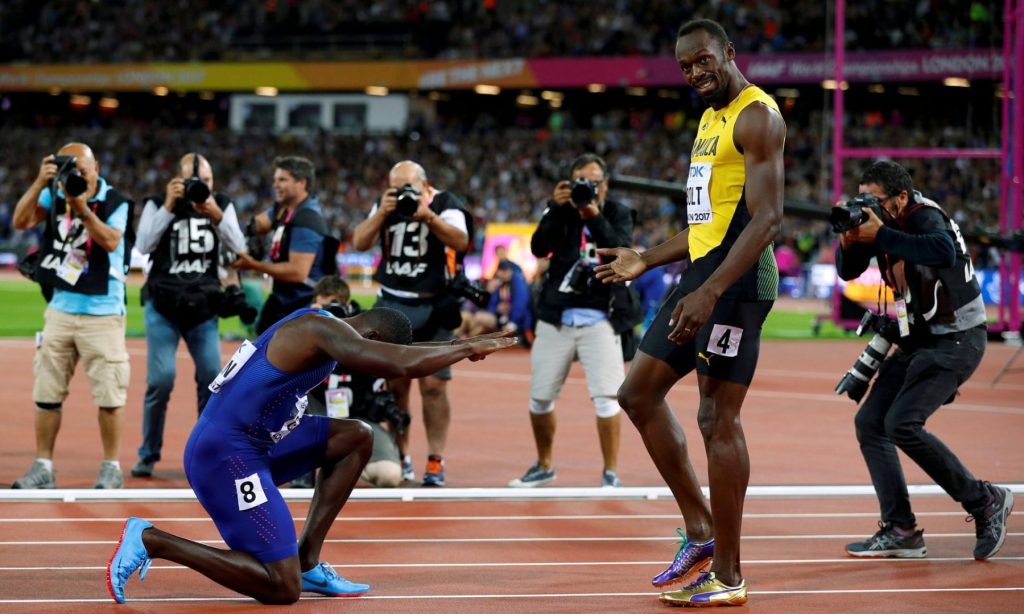
Justin Gatlin bows before Usain Bolt after beating him in the 100m final. (Photograph: Phil Noble/Reuters)
Philanthropic Efforts
In 2009, Bolt paid simply over £10,000 to officially embrace a surrendered cheetah offspring – named Lightning Bolt – in Nairobi and has since paid £2,300 every year to cover its upkeep at the halfway house. His beneficent work outperforms his help of Kenya’s natural life preservation endeavors nearer to home: the Usain Bolt Foundation attempts to profit neighborhood youths, through wearing arrangements, improving network structures, and subsidizing skilled Jamaicans to exceed expectations in their picked controls.
The man may be worth a great many dollars nowadays, in any case. His philanthropic efforts include recommending his sponsorship manager Puma to send wearing gear to his school, William Knibb Memorial High School, to help other people follow in the master’s footsteps. When you see Usain Bolt in an advert, it’s undoubtedly taped in Jamaica, by a Jamaican creation group, trying to help a nearby endeavor and pick up an introduction for the nation.
Under whose request? Bolt’s, Obviously


